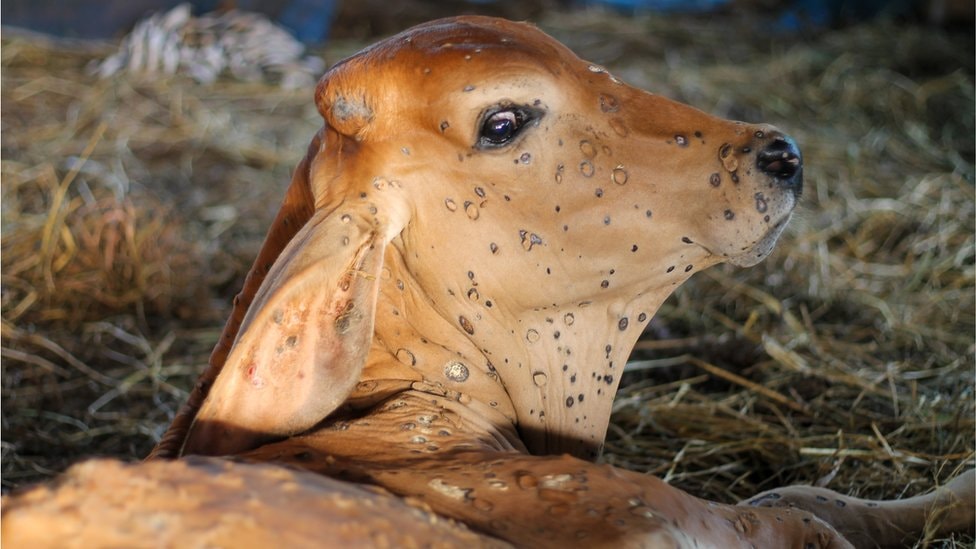We all are well aware of Lumpy Skin Disease (LSD) as the farmers in Pakistan suffered last year due to huge economic losses due to LSD, here is a refresher article. Please go through it and advise your fellow farmers to vaccinated their animal well in time.

Lumpy skin disease (LSD) is a viral disease that primarily affects cattle, although it can also infect other ruminant animals such as buffalo, sheep, and goats. The disease is caused by the lumpy skin disease virus (LSDV), which belongs to the Capripoxvirus genus.
LSD causes fever, loss of appetite, and the formation of nodules or lumps on the skin and other parts of the body, such as the eyes and genitals. The nodules are often painful and can cause discomfort for affected animals. In severe cases, the nodules can rupture and cause secondary infections, leading to additional health problems.

Lumpy skin disease is highly contagious and can spread rapidly between animals, either through direct contact or through insect vectors such as mosquitoes. The disease can have a significant economic impact, as it can reduce milk production, cause weight loss in affected animals, and even lead to death in severe cases.
Here are some measures that can be taken to prevent the spread of lumpy skin disease in cattle:
Vaccination is the most effective way to prevent lumpy skin disease in cattle. There are several vaccines available that can provide protection against the disease. These vaccines stimulate the animal’s immune system to produce antibodies against the virus, which helps to prevent infection or reduce the severity of symptoms. It’s important to follow the recommended vaccination schedule and maintain accurate records to ensure all animals are properly vaccinated.

Quarantine measures are also important to prevent the spread of lumpy skin disease. Infected animals should be isolated and kept away from healthy animals to prevent the disease from spreading. In addition, new animals brought onto the farm should be quarantined for a period of time to ensure they are not infected before they are introduced to the rest of the herd.
Mosquitoes and other insects can spread lumpy skin disease, so it’s important to control insect populations on the farm. This can be done through the use of insecticides, mosquito nets, and other methods. Eliminating standing water and cleaning up manure can also help to reduce insect breeding sites.
Good biosecurity practices are important in preventing the spread of lumpy skin disease. This includes limiting farm access to essential personnel only, disinfecting equipment and tools, and preventing contact between cattle and wild animals. Good hygiene practices like handwashing and using foot baths can also help to reduce the risk of disease transmission.
Regular monitoring of cattle for signs of lumpy skin disease can help to detect the disease early and prevent its spread. This can include regular visual inspections of animals, as well as testing for the virus. Early detection allows for prompt treatment and isolation of infected animals, which can help to prevent the disease from spreading to other animals. Veterinarians and animal health experts can provide guidance on surveillance measures and testing protocols.
If you need any further information or guidance about LSD, please contact Dasan Fee’s technical staff in your respective area.
Dasan is Pakistan’s best quality dairy feed manufacture, we produce a variety of dairy feed products to meet the nutritional requirements of cattle. We source and process a variety of ingredients to create balanced and nutritious feed formulations. We adhere to strict quality control and safety standards to ensure that Dasan Feeds meet industry regulations and are safe for consumption by cattle.

